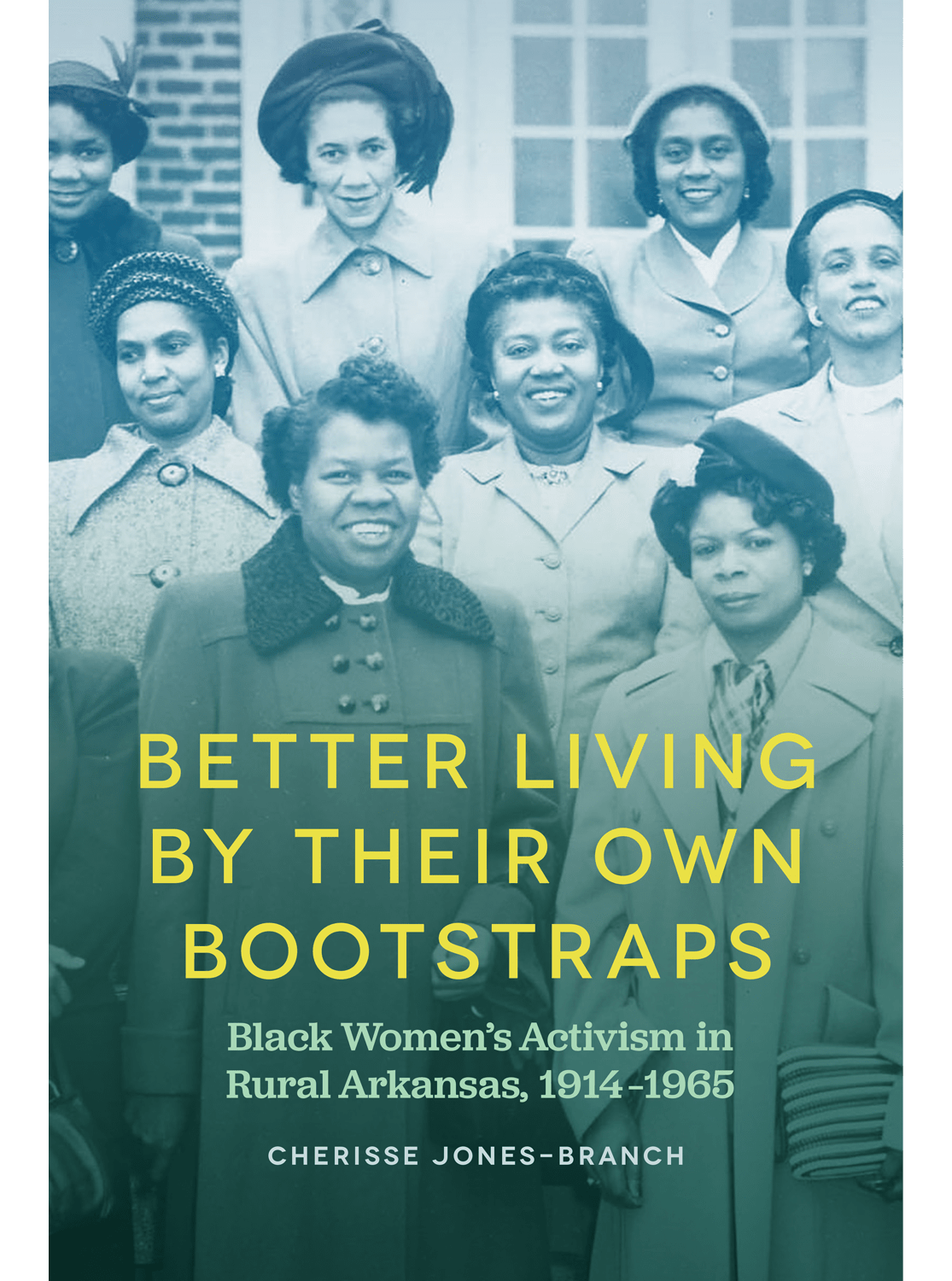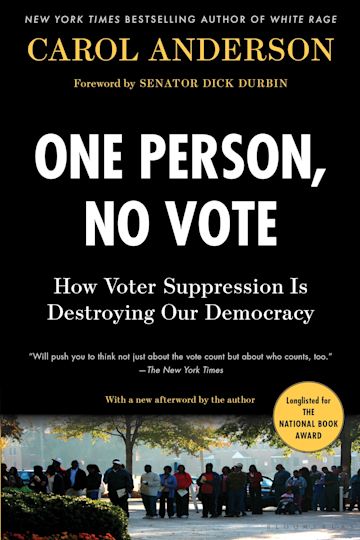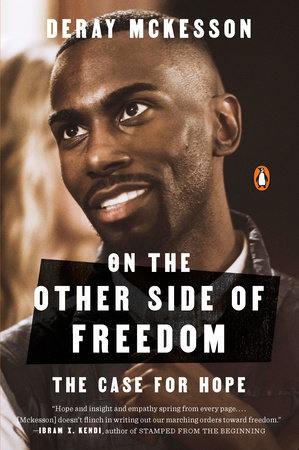Ta-Nehisi Coates - A Unique Take on a Familiar World in “The Water Dancer” | The Daily Show
By
Oprah Winfrey — 2019
YOU MIGHT ALSO LIKE
CLEAR ALL
BY TOPIC
BY TEACHER
BY TYPE
FILTER

TOPIC
- Black Well-Being (47)
- BIPOC Well-Being (46)
- Racial Healing (41)
- Community Healing (38)
- Poverty/Economic Inequality (32)
- Social Responsibility (29)
- Spirituality and Politics (29)
- Economic Justice (24)
- Nonviolence (18)
- Whiteness (16)
- Environmental Justice (15)
- Incarceration (15)
- Christianity (14)
- LGBTQIA Well-Being (14)
- Fellowship and Community (13)
- Communication Skills (12)
- Women’s Rights (12)
- Female Empowerment (11)
- Freedom (11)
- Immigration and Assimilation (11)
- Memoir (11)
- Buddhism (10)
- Disabled Well-Being (10)
- Racial Identity (10)
- Self-Care (10)
- Women’s Well-Being (10)
- Courage (9)
- Empowerment (9)
- Gender Justice (9)
- Resilience (9)
- Cross-Cultural Dynamics (8)
- Gender Discrimination (8)
- LGBTQIA Sexuality (8)
- Discrimination (7)
- Feminism (7)
- Inner Life (7)
- Interdependence (7)
- Speaking Your Truth (7)
- Trauma Healing (7)
- Athlete Well-Being (6)
- Hope (6)
- Identity (6)
- Mindfulness (6)
- Youth Activism (6)
- Access to Education (5)
- Burnout (5)
- Compassion (5)
- Indigenous Rights (5)
- Masculine/Feminine Dynamics (5)
- Race and Gender (5)
- Unity (5)
- Belonging (4)
- Building Culture (4)
- Conflict Resolution (4)
- Creative Well-Being (4)
- Dharma (4)
- Ecospirituality (4)
- Imagination and Creativity (4)
- Unconscious Bias (4)
- Young Adult Well-Being (4)
- AAPI Well-Being (3)
- Body Image (3)
- Climate Change (3)
- Connection (3)
- Connection with Nature (3)
- Faith and Identity (3)
- Gender and Spirituality (3)
- Global Challenges (3)
- Goal Setting (3)
- Homophobia (3)
- Indigenous Well-Being (3)
- Latinx Well-Being (3)
- Leadership (3)
- Mental Health Challenges (3)
- Offering Support to Others (3)
- Social Presence (3)
- Social Psychology (3)
- Transformation (3)
- Transgender Well-Being (3)
- AIDS (2)
- Anger (2)
- Authenticity (2)
- Awareness (2)
- Building Character (2)
- Compassion Fatigue (2)
- Emotional and Mental Health (2)
- Empathy (2)
- Environmental Exploitation (2)
- Faith (2)
- God (2)
- Higher Calling (2)
- Human Potential (2)
- Inner Strengths (2)
- Inspiration (2)
- Leaving a Religion (2)
- MDMA (2)
- Optimism (2)
- Othering (2)
- Patience (2)
- Poetry (2)
- Psychedelic Research (2)
- Psychedelic-Assisted Therapy (2)
- Self-Healing (2)
- Self-Worth (2)
- Spiritual Growth (2)
- Spiritual Practices (2)
- Storytelling (2)
- Suffering (2)
- Sustainability (2)
- Values (2)
- Veteran Well-Being (2)
- Vulnerability (2)
- Yoga (2)
- Acceptance (1)
- Animal Connection (1)
- Asking for Help (1)
- Autism (1)
- Cancer (1)
- Cannabis/CBD (1)
- Child’s Emotional Growth (1)
- Children’s Well-Being (1)
- Christian Mysticism (1)
- Collaboration (1)
- Comparing Belief Traditions (1)
- Conscience (1)
- Conscious Evolution (1)
- Consciousness (1)
- Drug Policy (1)
- Embodiment (1)
- Emotional Intelligence (EQ) (1)
- Emotional Labor (1)
- Entrepreneurship (1)
- Facing Own Death (1)
- Failure (1)
- Fear (1)
- Finding Meaning (1)
- Forgiveness (1)
- Generosity (1)
- Global Food Supply (1)
- Grace (1)
- Grief (1)
- Habits of Mind (1)
- Hero’s Journey (1)
- Humanitarian Aid/Relief Work (1)
- Imposter Syndrome (1)
- Indigenous Healing Approaches (1)
- Inner Peace (1)
- Insomnia (1)
- Intention (1)
- Judaism (1)
- Learning Styles (1)
- Letting Go (1)
- LGBTQIA Children (1)
- LGBTQIA Parents (1)
- Life Challenges (1)
- Living with Illness (1)
- Loneliness (1)
- Love (1)
- Managing Energy (1)
- Meditation (1)
- Mentoring (1)
- Mindfulness Meditation (1)
- Moral Philosophy (1)
- Motivation (1)
- Neopaganism (1)
- Neurodiversity (1)
- Neuroscience (1)
- Nonbinary Well-Being (1)
- Oneness (1)
- Parenting (1)
- Philosophical Approaches (1)
- Plant-Based Medicine (1)
- Presence (1)
- Psilocybin (1)
- Psychology (1)
- PTSD (1)
- Ritual (1)
- Search for Purpose (1)
- Self-Acceptance (1)
- Self-Actualization (1)
- Self-Development (1)
- Self-Discovery (1)
- Self-Expression (1)
- Self-Realization (1)
- Self-Reckoning (1)
- Self-Reflection Practices (1)
- Sex (1)
- Sexual Assault or Abuse (1)
- Sexual Health (1)
- Sexuality (1)
- Spiritual Development (1)
- Spiritual Life (1)
- Spiritual Quest (1)
- Suicide (1)
- Taoism (1)
- Tibetan Buddhism (1)
- Trauma (1)
- Traumatic Grief (1)
- Trust (1)
- War (1)
- Wholeness (1)
- Witch (1)
- Witchcraft (1)
- Work Challenges (1)
- Work Relationships (1)
FILTER

TEACHER
- angel Kyodo williams (7)
- Malcolm X (6)
- adrienne maree brown (5)
- Audre Lorde (5)
- Cornel West (5)
- Lama Rod Owens (5)
- Arundhati Roy (4)
- Gloria Steinem (4)
- Jacqui Lewis (4)
- James H. Cone (4)
- Monnica Williams (4)
- Pope Francis (4)
- Rebecca Solnit (4)
- Valarie Kaur (4)
- Marshall Rosenberg (3)
- Nikki Giovanni (3)
- Rhonda Magee (3)
- Simone Weil (3)
- Alice Walker (2)
- bell hooks (2)
- Chelsey Luger (2)
- Howard Thurman (2)
- Ibram X. Kendi (2)
- Joan Chittister (2)
- Kareem Abdul-Jabbar (2)
- Liz Theoharis (2)
- Mary Pryor (2)
- Rachel Ricketts (2)
- Ruth King (2)
- Saeed Jones (2)
- Sonia Sanchez (2)
- Stephanie Y. Evans (2)
- The Dalai Lama (2)
- Abraham Joshua Heschel (1)
- Adrienne Rich (1)
- Billie Jean King (1)
- Damien Echols (1)
- Desmond Tutu (1)
- Diane di Prima (1)
- Elizabeth Cronise McLaughlin (1)
- Jean Shinoda Bolen (1)
- Jesus (1)
- JoAnna Hardy (1)
- Joanna Macy (1)
- john a. powell (1)
- Jon Kabat-Zinn (1)
- Kamilah Majied (1)
- Konda Mason (1)
- Krista Tippett (1)
- La Sarmiento (1)
- LaRayia Gaston (1)
- Louise Erdrich (1)
- Matthew Fox (1)
- Michelle Cassandra Johnson (1)
- Mirabai Bush (1)
- Misty Copeland (1)
- Muhammad Ali (1)
- Myokei Caine-Barrett (1)
- Nina Simons (1)
- Parker J. Palmer (1)
- Pema Khandro (1)
- Rachel Naomi Remen (1)
- Rha Goddess (1)
- Robert Thurman (1)
- Russell Brand (1)
- Satish Kumar (1)
- Serena Williams (1)
- Serene Jones (1)
- Sharon Salzberg (1)
- Starhawk (1)
- Tara Brach (1)
- Traci Blackmon (1)
- Winona LaDuke (1)
- Zainab Salbi (1)











